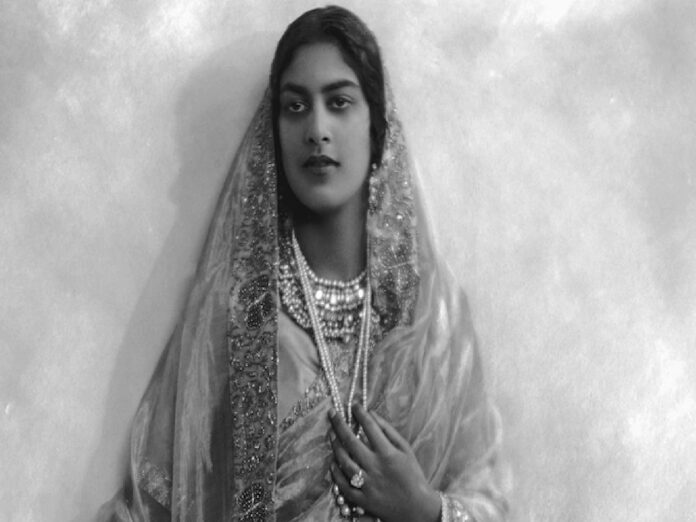Maharani Amrit Kaur: The Sikh Princess Who Bravely Sacrificed Everything to Save Jewish Lives
Maharani Amrit Kaur, a name largely forgotten by history, was a Sikh princess from the royal family of Kapurthala, a princely state in Punjab, India. Her life, one of immense privilege and responsibility, took a dramatic turn during the tumultuous years of World War II, when she displayed remarkable courage and humanity. Known for her regal stature and graceful presence, she sacrificed her wealth and personal safety to save Jewish intellectuals fleeing from Nazi-occupied France. Arrested by the Gestapo and imprisoned in a concentration camp, she eventually lost her life for her bravery.
Born in 1904, Amrit Kaur was the daughter of Maharaja Jagatjit Singh of Kapurthala, a progressive and cosmopolitan ruler who valued education and exposure to Western ideals. She was educated at an elite boarding school for girls in Eastbourne, England, which shaped her worldview and instilled in her a deep sense of compassion for marginalized communities. Her early life reflected the opulence and privilege of Indian royalty, but her actions during the war revealed an inner strength and commitment to justice that transcended her royal upbringing.
In 1923, she married Raja Joginder Sen Bahadur, the ruler of the princely state of Mandi in Himachal Pradesh. The couple had two children, and for a time, Amrit Kaur lived the life of a Maharani, engaging in social and charitable activities. According to a 1927 report in the *New York Herald Tribune*, Amrit Kaur had aspirations of working for impoverished and marginalized women, indicating that her concern for social issues existed long before the war.
However, her personal life took a tragic turn in the 1930s when her husband took a second wife. Heartbroken, Amrit Kaur left her children behind and fled to Europe, where she sought solace and a new beginning. This phase of her life saw her traveling to the United States before eventually returning to Europe just as the world was plunged into the chaos of World War II. It was during this period that Maharani Amrit Kaur made the fateful decision that would define her legacy.
In December 1940, the Gestapo, Nazi Germany’s secret police, arrested her. She had been using her wealth to assist Jewish intellectuals and others fleeing France during the Nazi occupation. To finance these escape efforts, she sold her personal jewellery, a remarkable gesture of self-sacrifice. While many people in Europe were consumed with their own survival, Amrit Kaur extended a hand to those in dire need, risking her life in the process. Her quiet defiance and humanitarian actions stood in stark contrast to the horrors of the time, and her bravery did not go unnoticed.
Elisa Vázquez de Gey, in her book Anita Delgado, Maharani de Kapurthala, recounts the touching friendship between Maharani Amrit Kaur and Anita Delgado, another Indian royal of Spanish descent. Delgado, from her home in Madrid, was both fascinated and repelled by India’s independence movement. However, when she learned of Amrit Kaur’s tragic death—a year after it occurred—she was deeply affected. The two women had shared a close bond, and Amrit Kaur’s selfless efforts to aid the Jewish community struck a personal chord with Delgado.
Amrit Kaur’s imprisonment in a German concentration camp following her arrest was a tragic end to her courageous efforts. Despite desperate political and diplomatic efforts to secure her release, she died in the camp in 1942. The exact circumstances of her death remain largely unknown, but her legacy as a woman who stood up against injustice and hatred endures.
Amrit Kaur’s story is a poignant reminder of the countless unsung heroes who risked everything to help those in need during one of history’s darkest periods. While her life was cut short, her actions left an indelible mark on those who knew her and the people she helped. Maharani Amrit Kaur was more than a princess draped in jewels; she was a beacon of hope and humanity in a time of overwhelming darkness.
Her life and legacy serve as an inspiration, not only as a tale of royalty but as a story of compassion, courage, and quiet defiance in the face of tyranny. In a world rife with suffering, Amrit Kaur exemplified what it means to use one’s privilege for the greater good, a message that resonates to this day.

